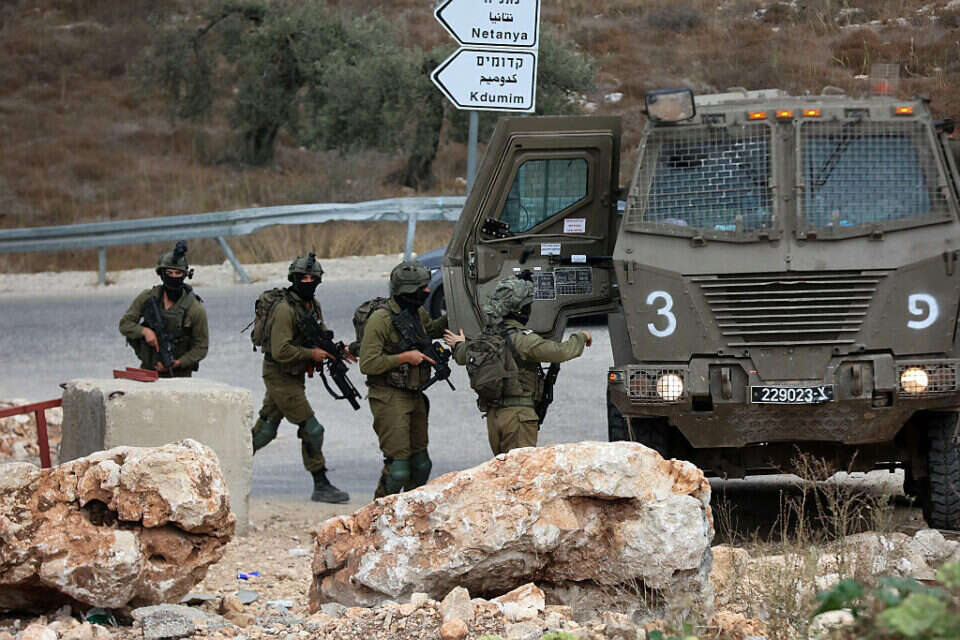About a month and a half after the war against Hamas began and after the entrance to Israel was closed to Palestinians, this morning, to their surprise, the heads of the local authorities discovered a document signed by Central Command Chief Yehuda Fuchs confirming the return of Palestinian workers to Israeli territory in Judea and Samaria.
Central Command engineering forces destroy infrastructure in Judea and Samaria for fear of IEDs
"No one, including the security officers, knew this document. It's a scandal," one mayor told Israel Hayom.
Last week, Central Command Maj. Gen. Yehuda Fuchs held a round of meetings with the heads of the local authorities, some of whom raised the demand to change the method of bringing workers into Judea and Samaria and creating a mechanism for approving the entry of workers.
Netanyahu and Galant on a field tour this week with Maj. Gen. Yehuda Fuchs, Photo: Amos Ben Gershom/GPO
Settlers on the road descending from Chumash (archive), photo: Arik Sultan
The settlers at the entrance to Turmus Aya, photo: Jonathan Zindelflash 90
Me. A new neighborhood established by the settlers, photo: uncredited
The meeting with Maj. Gen. Fuchs, against the backdrop of the war in Gaza and tensions in the north, instilled in them the belief that something was likely to change and that the IDF would establish new procedures on the matter. For this reason, they were negatively surprised that the published document included only a partial mechanism that did not satisfy the security needs of the communities. "From this document, we understand that nothing happened. After six weeks of not letting them in, everything is back to normal, unchanged."
"Everyone understands that it is impossible to continue preventing the Palestinians from entering, but the expectation is to create a mechanism that can reassure the public that this will not happen again. You can't say that the way things went will continue. If they haven't built any other mechanism, we're on a fault course."
"Excuse me? Are we responsible for security?"
Despite the approval granted, most authorities allow only a very few workers to enter the communities, and only for essential needs. "They do it with no other choice, in isolated areas, with specific permits. It's not construction workers or cleaning workers. What does the general say? I leave it to the discretion of the head of the council. Excuse me? What am I responsible for security? This is a security event par excellence. Tell me, as an army, what you do differently so I can tell the resident that he has nothing to worry about."
A security source said in response to the settlers' claims, "We put in place quite a few mechanisms to enable on the one hand and provide security on the other. We opened the industrial zones by stairs, to the point where everything is open with security mechanisms to provide the security mechanisms. The next stage, which has arrived today, is the settlements.
"We don't say whether to let them in or not," the security source explains, "but provide them with the mechanism. We determine the mechanism that allows residents to enter. If a person doesn't want to let in the workers, don't let him in. Some council leaders say that. They don't allow entry."
Wrong? We'll fix it! If you find a mistake in the article, please share with us

